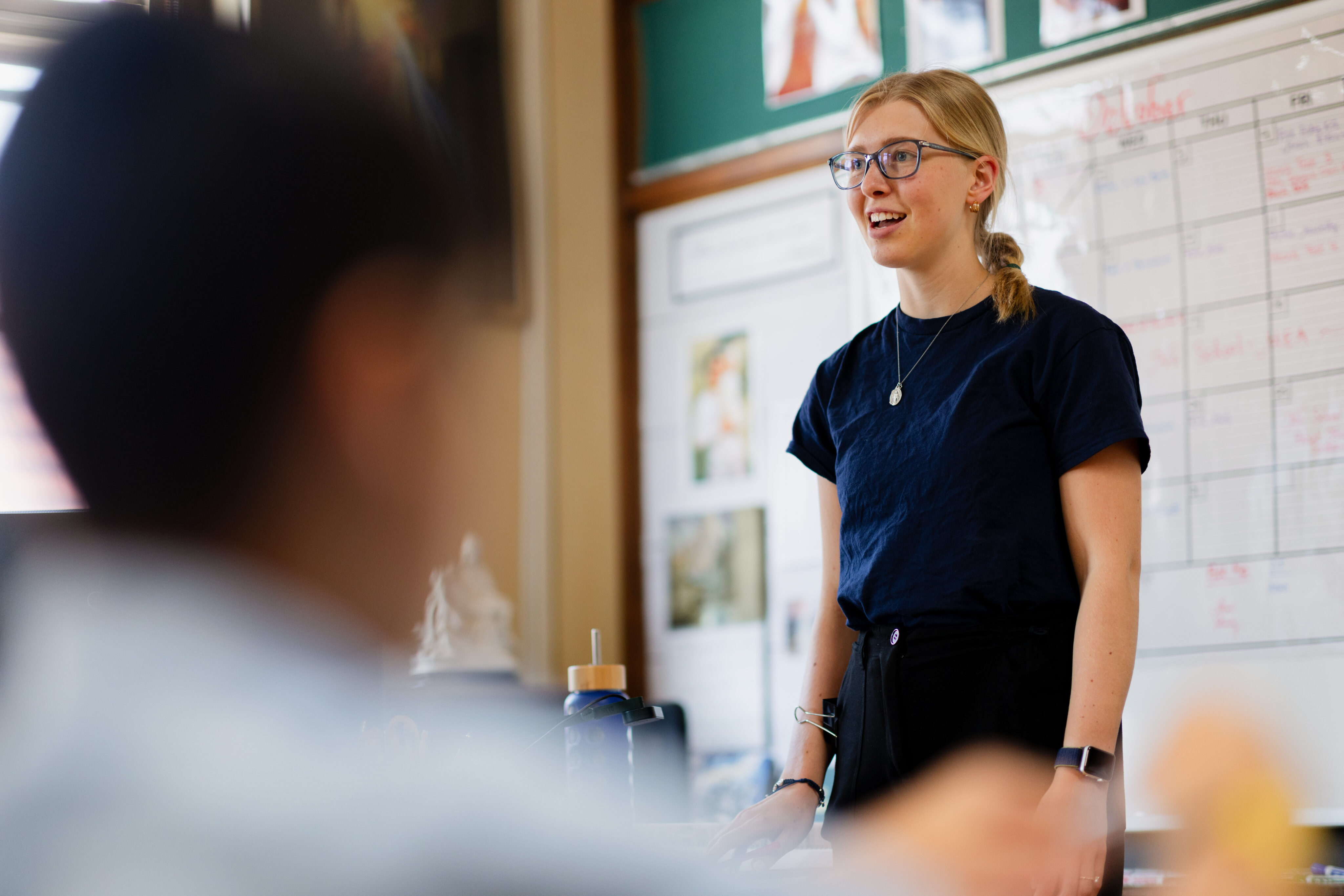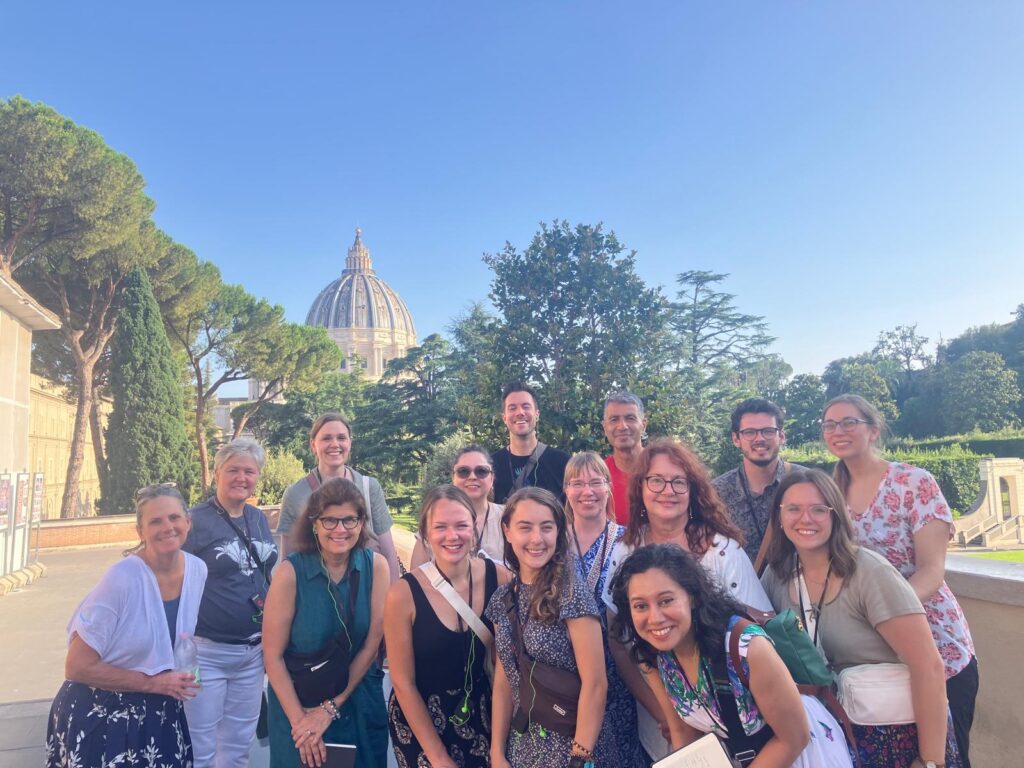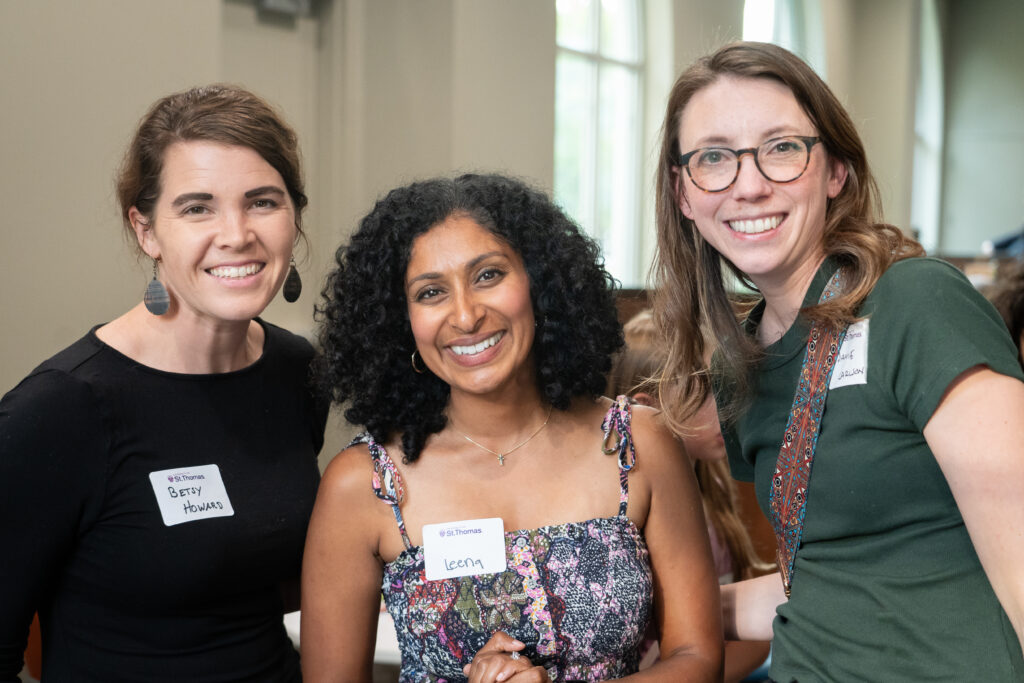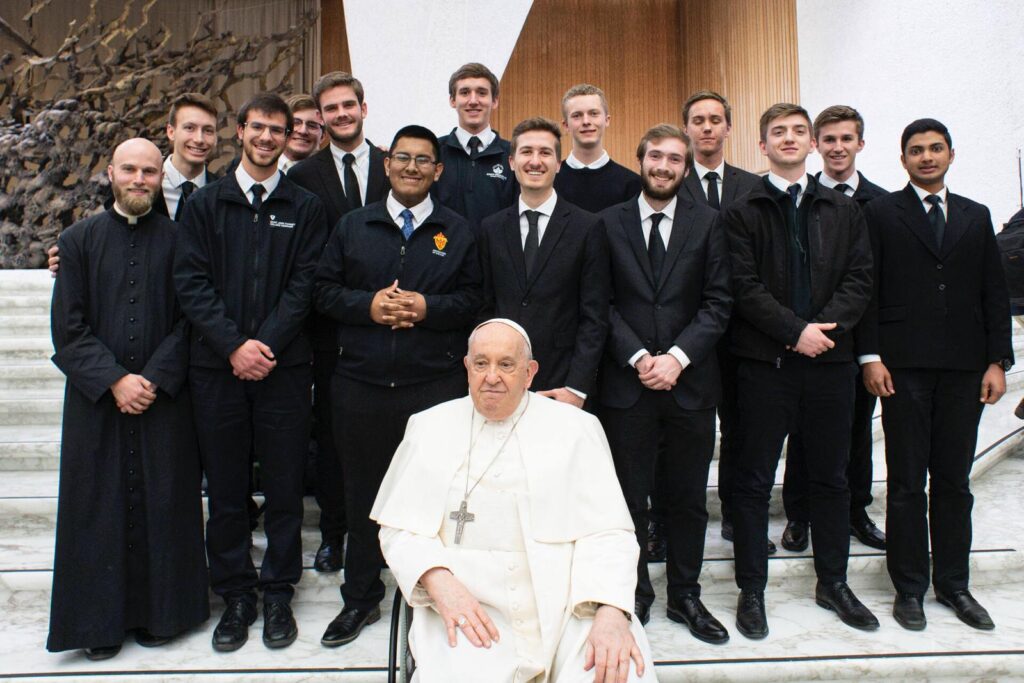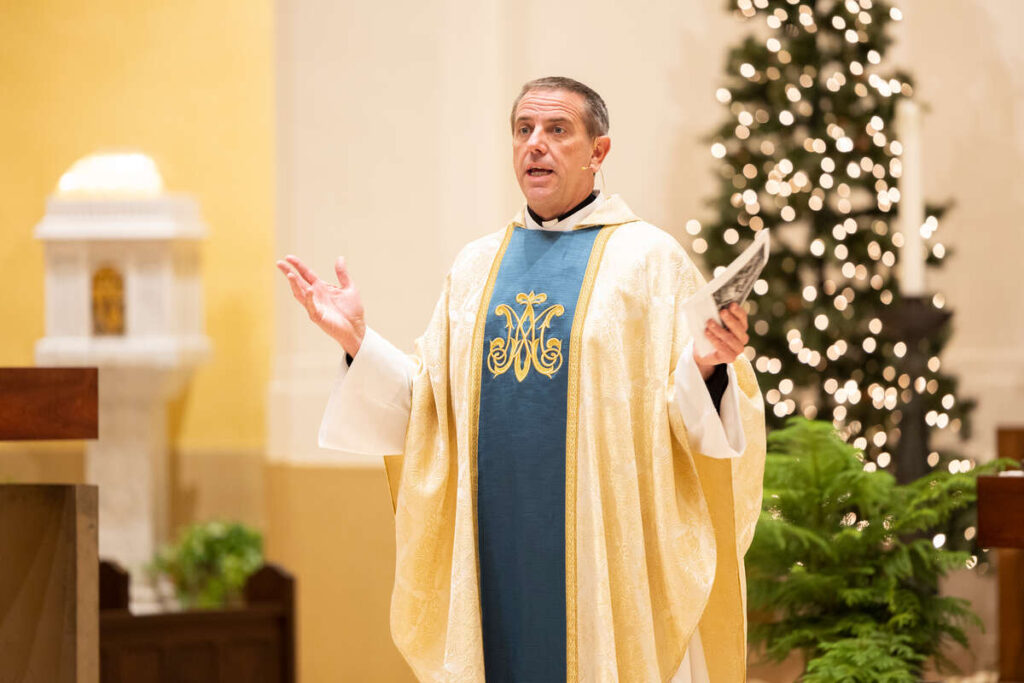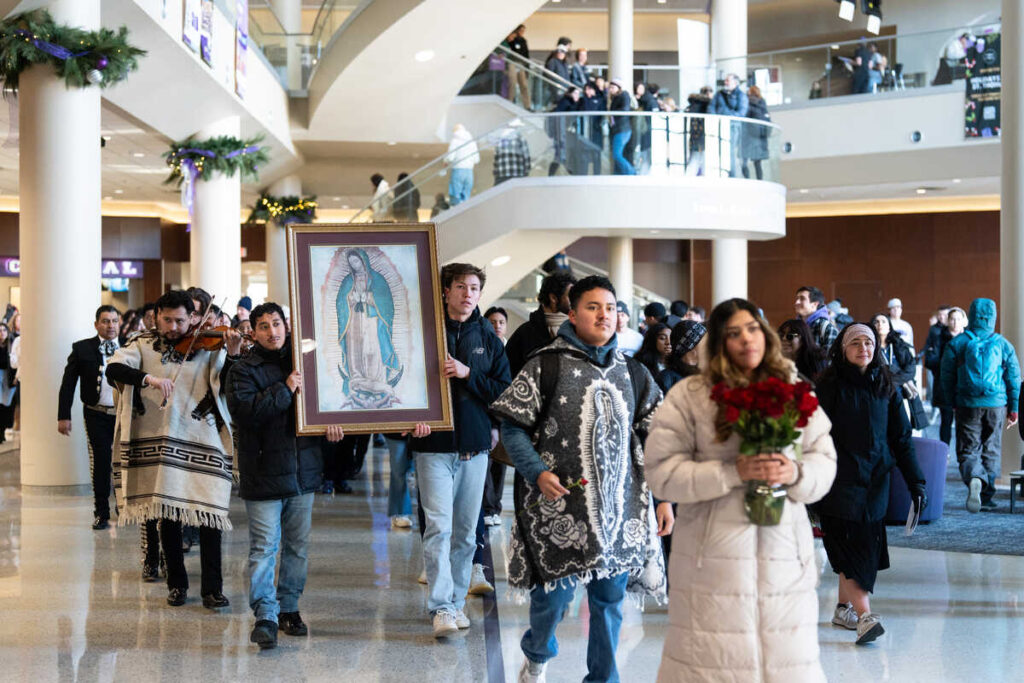Something significant is happening in Catholic education today. In their 2023–24 annual report, the National Catholic Education Association shares that “amidst societal upheaval and educational instability, Catholic schools have emerged as beacons of stability, reversing years of enrollment decline.”
Yet tucked inside the positive news, Catholic schools increasingly face the challenge Jesus gave the apostles: “the laborers are few” (Mt 9:37). In the Archdiocese of Saint Paul and Minneapolis, for example, schools replace approximately 250-300 educators every year. This is in the context of a 10% increase in enrollments. In addition, Catholic schools across the country face the challenge of finding faith-filled educators who have a deep understanding of Catholic education.
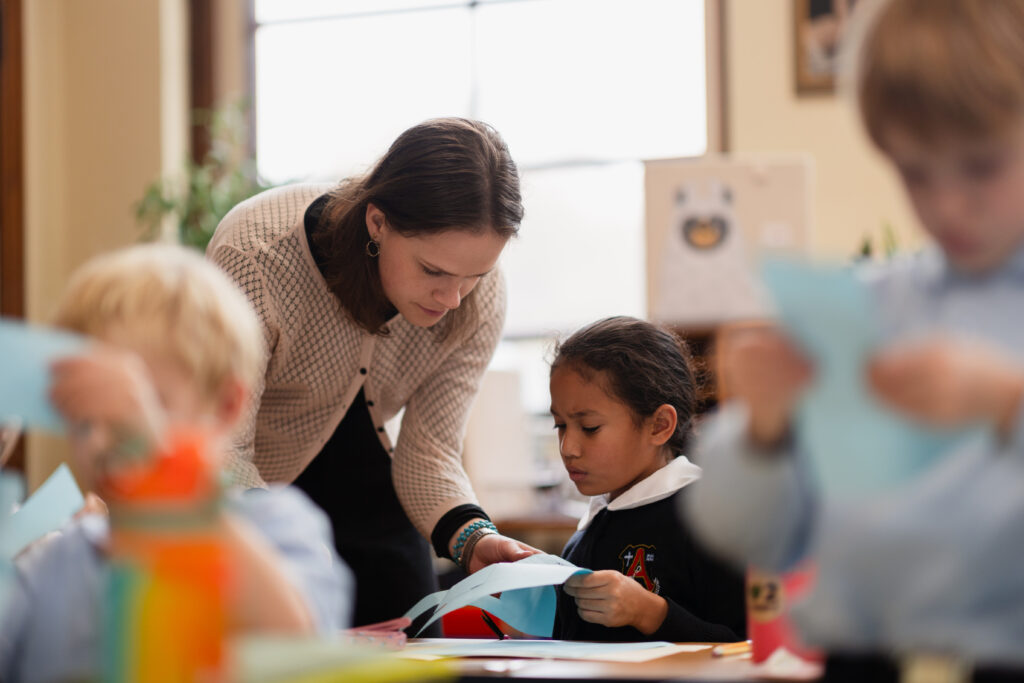
To meet the moment, Catholic Studies developed an alternative pathway in 2023. The Mission and Culture Fellows in Catholic Education program is a unique two-part immersion experience that prepares mission-minded college graduates to work in a Catholic school and educates them in an interdisciplinary approach to the Catholic intellectual tradition, focusing on literature, history, philosophy, science, art, and theology. This is an expansion of the existing Mission and Culture Internship program for undergraduates.
Steve Hoeppner, Vice PresidentThe Fellows and their mentor teachers sing the praises of the program.”
Richard M. Schulze Family Foundation
Thanks to financial support from a grant received two years in a row from the Richard M. Schulze Family Foundation, Fellows earn a monthly stipend for 10 months, receive generous scholarship support for the Certificate in Mission and Culture of Catholic Education, and, upon completion, seek full-time employment in Catholic education. This innovative program has attracted national attention: The St. John Henry Newman Institute is currently providing essential grant support for Fellows in the Diocese of Grand Rapids, Michigan, and the Archdiocese of Boston, as well as the Dioceses of Masaka and Soroti in Uganda. This support is a “win” for students, Catholic schools and the Church.
"The Richard M. Schulze Family Foundation has proudly supported the Mission and Culture Fellows in Catholic Education program in each of its first two years because we’re passionate about helping Catholic elementary schools achieve and maintain excellence," said Steve Hoeppner, vice president Richard M. Schulze Family Foundation. "We know that the best way to do this is through educators who are passionate about the mission and are well prepared to be teachers and leaders. The Center for Catholic Studies created a program that provides excellent academic content along with valuable hands-on experience. The Fellows and their mentor teachers sing the praises of the program.”
The Fellows program was designed with three components in mind that will help transform the next generation of Catholic school educators: recruit, form, retain.
Recruit
This program is ideal for mission-driven college graduates who are discerning Catholic education as their vocational call. Catholic Studies seeks men and women who seek a deep philosophy of Catholic education, possess a love for young people and subject knowledge, and desire to learn excellent teaching skills.
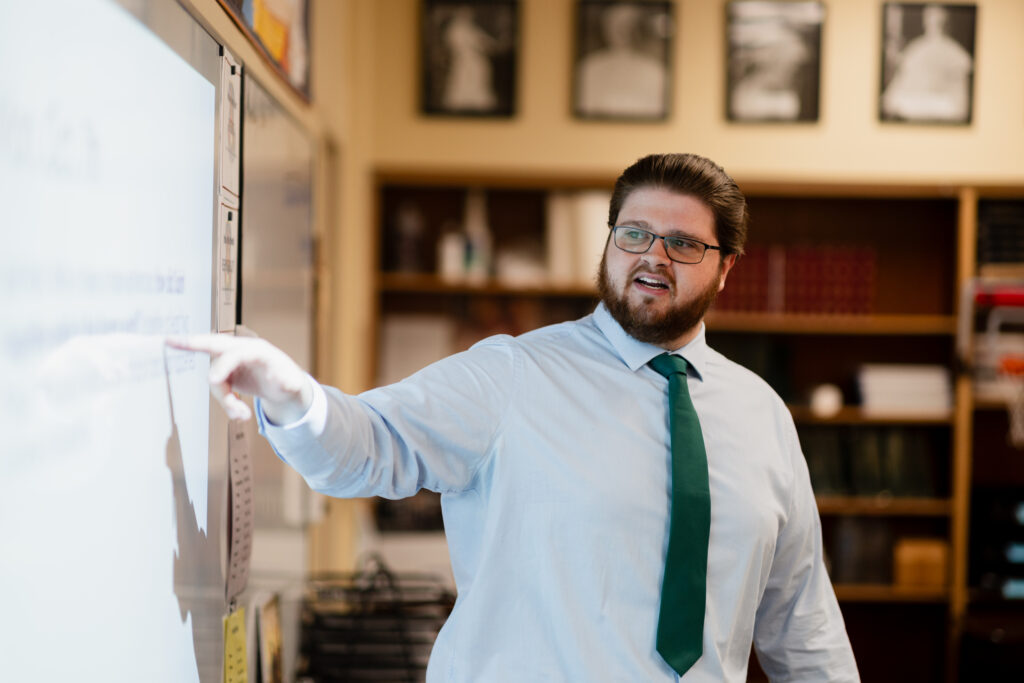
Form
The Mission and Culture Fellows program is an opportunity for future educators to be formed by experienced mentors in mission-oriented schools. Fellows engage with master practitioners in all areas of Catholic education including teaching, development, administration, recruitment, and extracurriculars.
Fellows begin by observing, offering support, delivering small-group lessons, and introducing assignments. By the end of the first semester, they are managing the classroom, offering short lessons, giving assessments, and learning the gradebook. By second semester, Fellows are equipped to teach in a subject area.
Kevin Ferdinandt, HeadmasterI have principals from other schools asking me about the Mission and Culture Fellows. This really is an extraordinary program.”
St. Agnes School
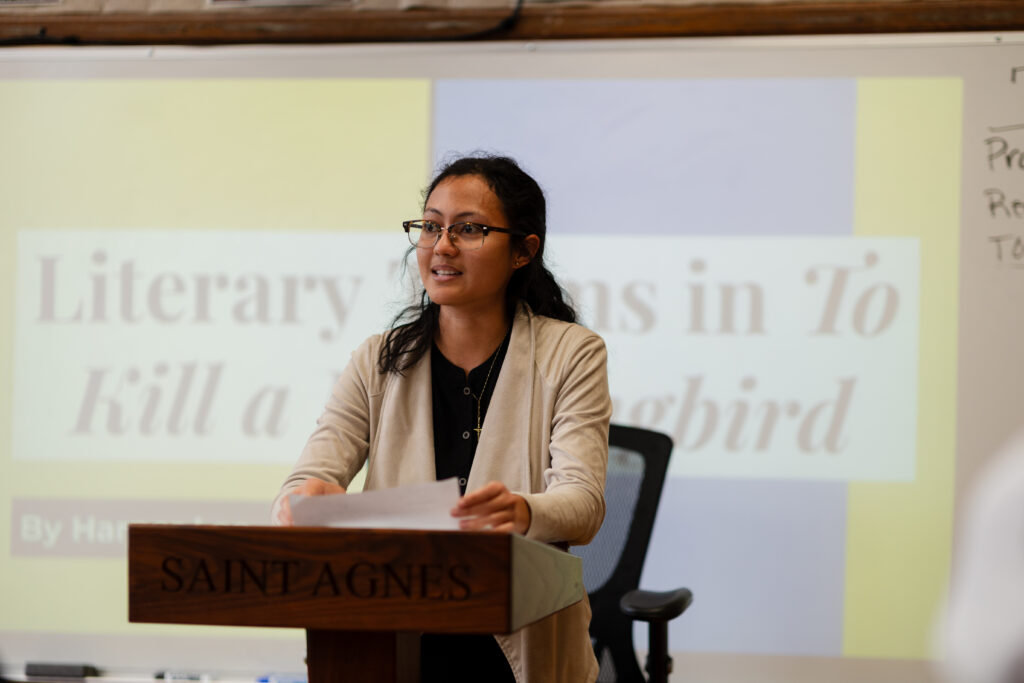
Hannah White ’24 CSMA, a Fellow in the first cohort and now a middle school history and science teacher at St. Croix Catholic School in Stillwater, Minnesota, shared the moment when she first felt like a teacher:
“As a new Fellow, I was nervous with 20 pairs of eighth-grader eyes on me. A couple of months later, my mentor-teacher had to step out of the room, and she handed me the work and I took over. It was easy. I could facilitate the conversation while gently interrupting the student in the back of the room talking to his friend. That is when I felt like a teacher.”
Retain
Well-formed, mission-driven educators who understand the Catholic intellectual tradition are more likely to stay long term and invest in a school. And, once the Fellows have successfully completed the program and are fully employed, they have access to ongoing professional development opportunities including:
- A master’s degree in Catholic Studies or other degree programs at the University of St. Thomas, fully funded by the Archdiocese of Saint Paul and Minneapolis.
- An 18-month teaching credentialing program with the Institute for Catholic Liberal Education.
- A master’s-level certificate from the Institute for Catholic School Leadership at The Saint Paul Seminary School of Divinity for those considering leadership roles in Catholic education.
The future of the Fellows program is bright. The three original Fellows are employed full time at schools in the Archdiocese of Saint Paul and Minneapolis, and 13 Fellows in the U.S. and Africa are currently in formation to serve in Catholic education. In this time of change, alternative pathways like this are meeting the needs of Catholic schools which is vital to the Church’s mission of evangelization.
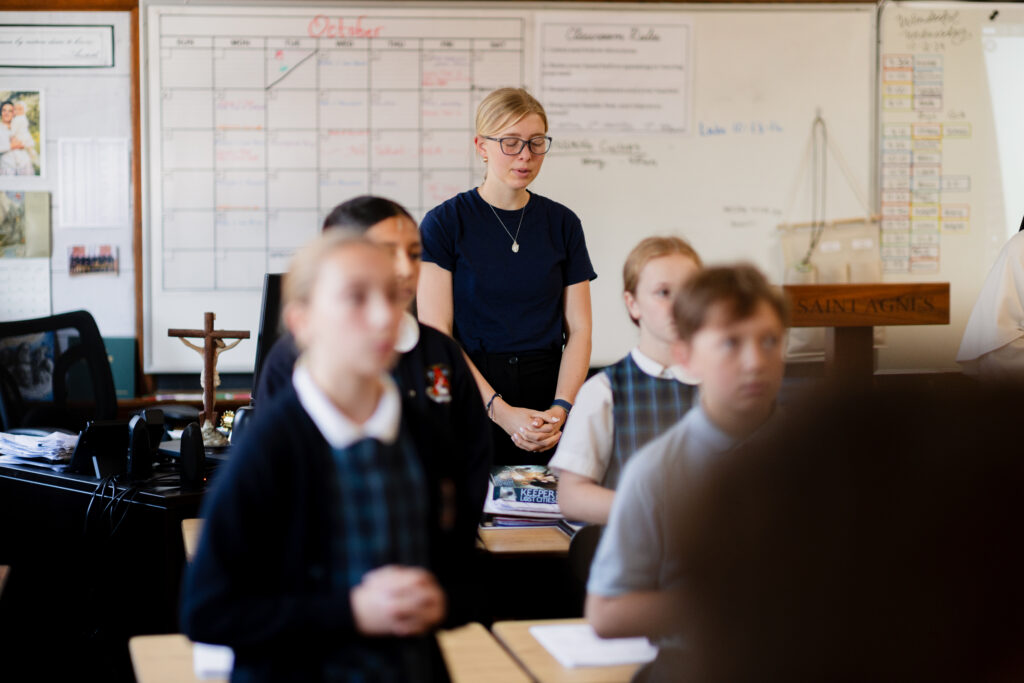
This story is featured in the winter 2025 issue of Lumen.
